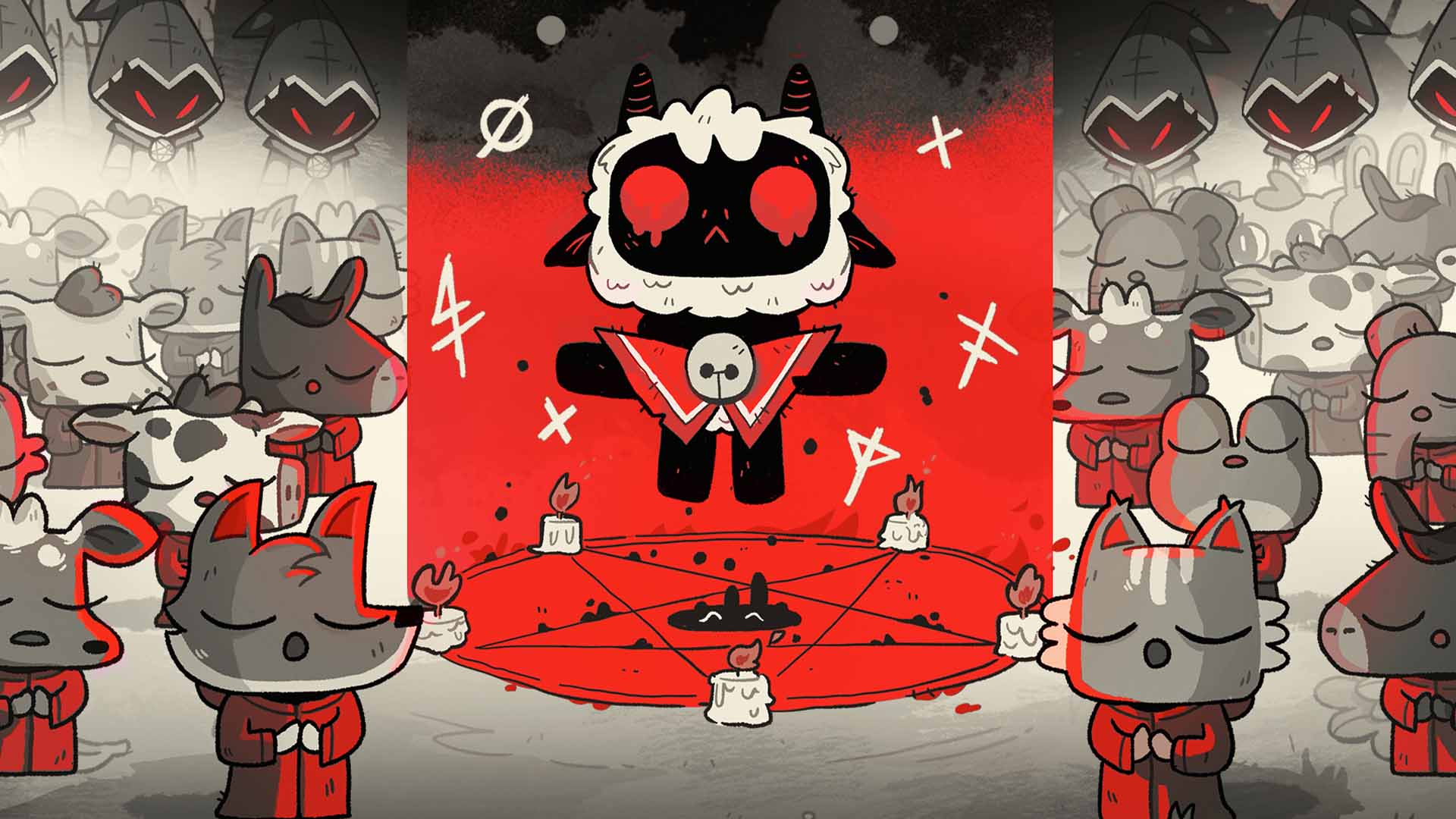I just want to make a note that I started writing this post before Thursday, and for continuity I want to keep my earlier thoughts but I will also be expanding on the topics on that class’s discussion.
Genres in videogame-making gain more and more ambiguity as more games develop, while the games themselves also contain content which makes defining their genres to be difficult. Cult of the Lamb is no exception. Wikipedia defines it as a “rogue-like action-adventure” game, while Steam defines this game as “Action, Adventure, Indie, and Strategy” underneath the genre description. Obviously, there’s no debate that this game has rogue-like elements; the main way to grow your cult is to go into the randomly generated dungeon. However, what is really the core of its gameplay? What would its main genre be?
In terms of the rogue-like elements defining this game, the main plot takes place through going into the dungeon. In order to progress the story, the player must defeat different dungeons a certain number of times until they can battle and defeat the boss of that type of dungeon. The main way to gather resources and recruit more cultists is to explore these dungeons. The biggest developments happen in the rogue-like part of this game.
However, this game can also be categorized mainly as a management simulator; a lot of time must be spent tending to the cult, otherwise the cultists will grow unhappy and possibly die due to neglecting their needs, which would result in the loss of followers. Adding to this feature, the player also has other options for places to go besides their home base and outside of the dungeon. One location involves a minigame of chance, while another provides a fishing minigame, among other bonuses. Some of these add-ons do relate to the dungeons; one place has a shop to purchase extra tarot cards to add to your collection of the possibilities you can draw within dungeons. Still, they are distractions to the dungeon sprawl mechanic.
But with all this, what’s the point? Through our discussion on Thursday I was much more convinced on how Cult of the Lamb has a right to stand as one of the best examples of a roguelike, even though much of these added features distract from that main principle. It still does randomness very well, yet it holds the player’s hand much more in still giving the capabilities to build their cult, even if they are bad at roguelikes. Still, so what? Why make this game much more accessible? Perhaps to make more people enjoy what a roguelike has to offer; a small group of people find thrills in playing games where they build up their character, yet they die once and they die for good. Some people live for impossibly hard games, like Dark Souls. Many roguelikes such as Into the Gungeon and The Binding of Isaac have felt very isolating to me due to their difficulty (at least that was my impression), but this game lets players play at the skill they desire and they have a choice in what is more important (hard dungeons, or raising a cult). It has more appeal to bring a much wider audience to their game due to its variety, yet still wants to showcase the fun and beauty of roguelikes.


It’s interesting to me that you seem to prefer Cult of the Lamb’s take on roguelikes more than “traditional” roguelikes (you specifically mention Binding of Isaac, one of my favorite games), that it provides all the needed roguelike elements, but was more accessible because it doesn’t have to be as difficult as other roguelikes.
I actually thought, and wrote about in my own blog post, that the extra elements take away from the rougelike aspect of the game. Personally, I played Cult on hard and ended up spending so much time on cult-management, that I barely spent any time in the dungeons. And maybe it’s because I’m a somewhat experienced roguelike player, but I felt that the dungeons were the most interesting part of the game, and not being able to spend as much time as I wanted in them was a little annoying for me, and ended up turning me off a little.
I like your analysis of the gameplay, especially the nuances between the cult of the Lamb and traditional roguelites. However, I wonder if the rogue system really fits into the narrative of the game. How do defeating bosses and conquering dungeons naturally fit in the objective of expanding the cult? I think Hades does a way better job here by combining a great plot into the gameplay.